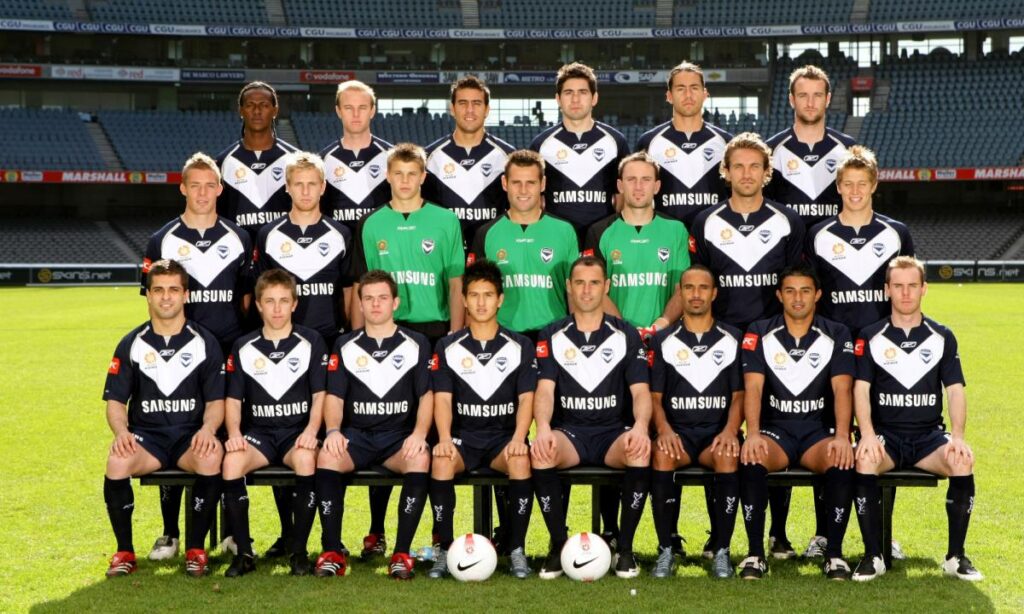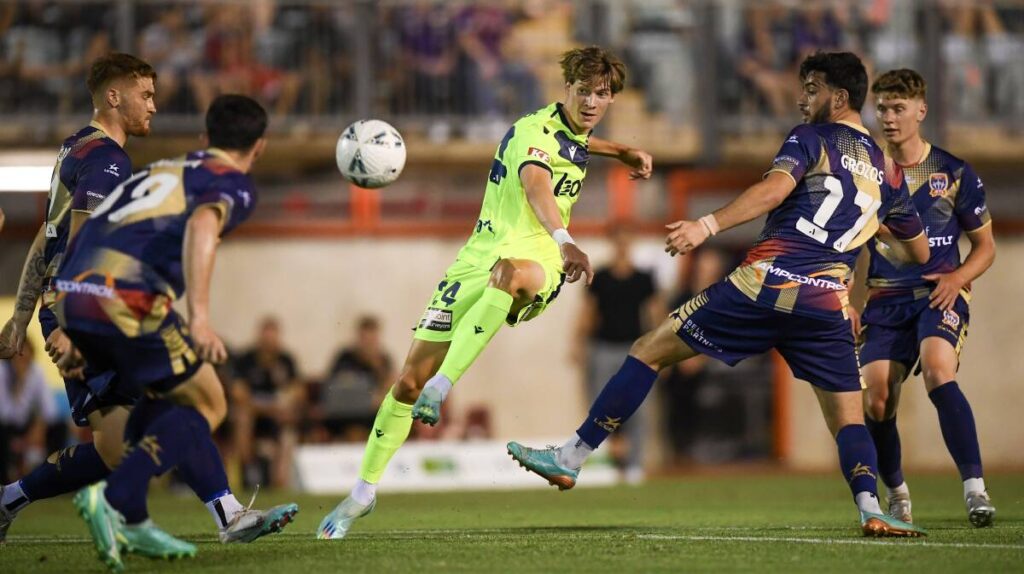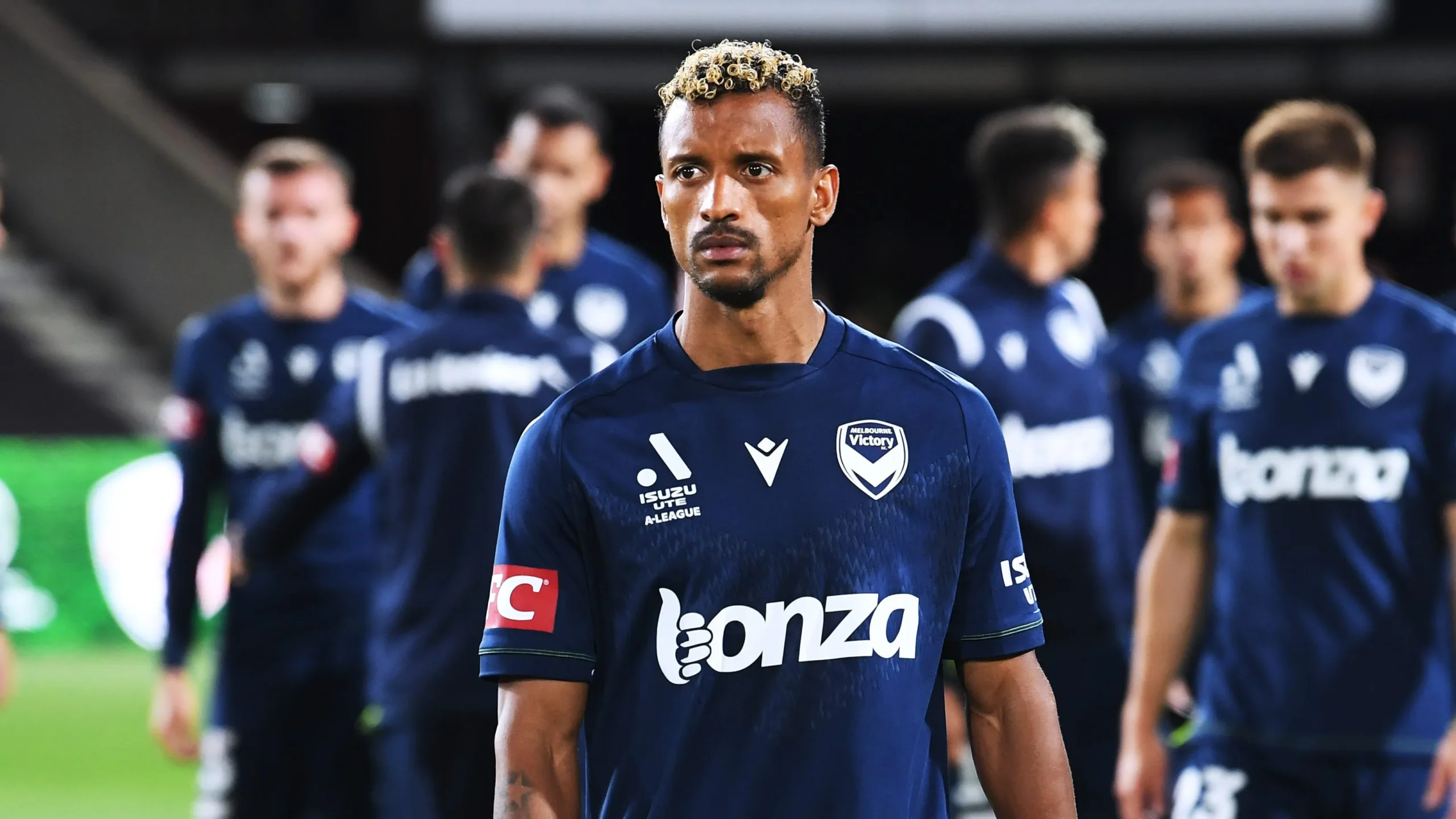Melbourne Victory Football Club, based in Melbourne, Victoria, is one of the most successful and popular football clubs in Australia. Since its establishment in 2004, Melbourne Victory has become a dominant force in the A-League, the premier professional football league in Australia. This article explores the club’s history, achievements, key players, challenges, and its impact on Australian football.
Origins and Formation Melbourne Victory

Melbourne Victory was founded in 2004, a pivotal moment in Australian football history. The creation of the A-League marked a new era, replacing the defunct National Soccer League (NSL). Melbourne Victory quickly established itself as a club with high ambitions, aiming to become a leading team in the newly formed league.
The club’s name, “Victory,” symbolizes the aspiration to achieve success both on and off the pitch. The club’s colors, navy blue and white, reflect the traditional colors of Melbourne, creating a strong connection with the city and its sports-loving community.
Early Years and Initial Success
Melbourne Victory’s inaugural season in 2005-2006 was a learning curve, with the team finishing in seventh place. However, the club’s management, led by Chairman Geoff Lord and CEO Geoff Miles, was committed to building a competitive team. The appointment of coach Ernie Merrick proved to be a turning point.
In the 2006-2007 season, Melbourne Victory achieved its first major success, winning the A-League Premiership and Championship. The team finished the regular season at the top of the table and went on to win the Grand Final in emphatic fashion, defeating Adelaide United 6-0. This victory marked the beginning of Melbourne Victory’s dominance in Australian football.
Key Players and Managers
Over the years, Melbourne Victory has been home to numerous talented players and managers who have contributed to the club’s success. Some of the most notable figures include:
- Kevin MuscatKevin Muscat, a former captain and later manager of Melbourne Victory, is one of the club’s most iconic figures. Known for his leadership and tenacity, Muscat played a crucial role in the club’s early successes. He transitioned to a coaching role, leading the team to further triumphs, including the A-League Championship in 2014-2015 and 2017-2018.
- Archie ThompsonArchie Thompson is a Melbourne Victory legend and one of the most prolific goal scorers in A-League history. His remarkable performance in the 2006-2007 Grand Final, where he scored five goals, remains one of the most memorable moments in Australian football. Thompson’s charisma and skill endeared him to fans, making him a fan favorite.
- Besart BerishaBesart Berisha, an Albanian striker, joined Melbourne Victory in 2014 and quickly became a key player. Known for his goal-scoring prowess and passion, Berisha played a pivotal role in the club’s success during his tenure. He helped the team secure multiple championships and was instrumental in important matches.
- Carlos HernándezCosta Rican midfielder Carlos Hernández brought flair and creativity to Melbourne Victory’s midfield. His technical skills and vision made him a standout player, and he was a crucial part of the team during his time at the club, contributing to their attacking style of play.
Achievements and Milestones

Melbourne Victory’s trophy cabinet is filled with numerous accolades, reflecting the club’s consistent performance and success in Australian football. Some of the most notable achievements include:
- A-League ChampionshipsMelbourne Victory has won the A-League Championship four times (2007, 2009, 2015, 2018), making it one of the most successful clubs in the league’s history. Each championship victory has been marked by memorable moments and outstanding performances from players and managers.
- A-League PremiershipsThe club has also secured the A-League Premiership three times (2007, 2009, 2015), finishing the regular season at the top of the table. These achievements underline the team’s consistency and ability to perform well throughout the season.
- FFA Cup VictoryIn 2015, Melbourne Victory won the FFA Cup, adding another prestigious trophy to their collection. The FFA Cup victory demonstrated the club’s versatility and ability to compete in knockout competitions.
- Asian Champions League ParticipationMelbourne Victory has represented Australia in the AFC Champions League multiple times, showcasing the club’s ambition to compete at the highest level in Asia. While success in the continental competition has been elusive, participation in the Champions League has provided valuable experience and exposure.
Challenges and Adversities
Despite its success, Melbourne Victory has faced several indratogel challenges and adversities over the years. These include:
- Managerial ChangesFrequent changes in managerial positions have posed challenges for the club. While some transitions have led to immediate success, others have resulted in periods of instability. Finding the right managerial fit has been crucial for maintaining consistency and achieving long-term goals.
- Player TurnoverHigh player turnover, common in professional football, has impacted team cohesion and performance. The departure of key players and the need to integrate new signings have required effective management and adaptation.
- Competition and RivalriesThe A-League is highly competitive, with several clubs vying for supremacy. Melbourne Victory’s fierce rivalries, particularly with Sydney FC and Melbourne City FC, have added intensity to the league. These rivalries have produced thrilling matches but also increased pressure on the team to perform consistently.
- Financial PressuresLike many football clubs, Melbourne Victory has faced financial pressures, particularly in light of the COVID-19 pandemic. The pandemic led to disruptions in the football calendar, reduced revenue, and increased financial strain. Navigating these challenges has required strategic planning and prudent financial management.
Fan Base and Community Engagement

Melbourne Victory boasts one of the largest and most passionate fan bases in Australian football. The club’s supporters, known as the “Victory Blue Army,” create an electric atmosphere at home matches, particularly at AAMI Park and Marvel Stadium. The fans’ unwavering support has been a driving force behind the team’s success.
The club is also deeply committed to community engagement and development. Melbourne Victory runs various programs aimed at promoting football at the grassroots level, supporting youth development, and fostering inclusivity. Initiatives such as school visits, coaching clinics, and partnerships with local clubs have strengthened the club’s bond with the community.
Future Prospects
Melbourne Victory’s future prospects remain bright, with the club aiming to build on its rich history and continue its success. Key areas of focus include:
- Youth DevelopmentInvesting in youth development is a priority for Melbourne Victory. The club’s academy system is designed to identify and nurture young talent, providing a pathway for aspiring footballers to progress to the first team. Developing homegrown players is crucial for the club’s long-term sustainability and success.
- Stability and Long-Term PlanningEnsuring stability in managerial and player positions is essential for maintaining consistency. Long-term planning, strategic recruitment, and effective player development will be key to achieving sustained success.
- Expanding Global ReachMelbourne Victory aims to expand its global reach by building international partnerships and participating in international competitions. Enhancing the club’s global profile can attract talent, sponsorship, and fan support from around the world.
- Fan Engagement and InnovationContinuing to engage with fans and embracing innovation will be vital for Melbourne Victory’s growth. Leveraging technology, enhancing the matchday experience, and fostering a strong connection with supporters will ensure the club remains at the forefront of Australian football.
Conclusion Melbourne Victory
Melbourne Victory’s journey from its inception in 2004 to becoming a powerhouse in Australian football is a testament to the club’s ambition, resilience, and commitment to excellence. With a rich history of achievements, a passionate fan base, and a focus on future development, Melbourne Victory is well-positioned to continue its legacy as one of Australia’s premier football clubs. As the club looks ahead, it remains dedicated to achieving success on the pitch, fostering community engagement, and inspiring the next generation of footballers.
Read More Article About “Life and Safety: A Comprehensive Guide to Protecting Lives“

